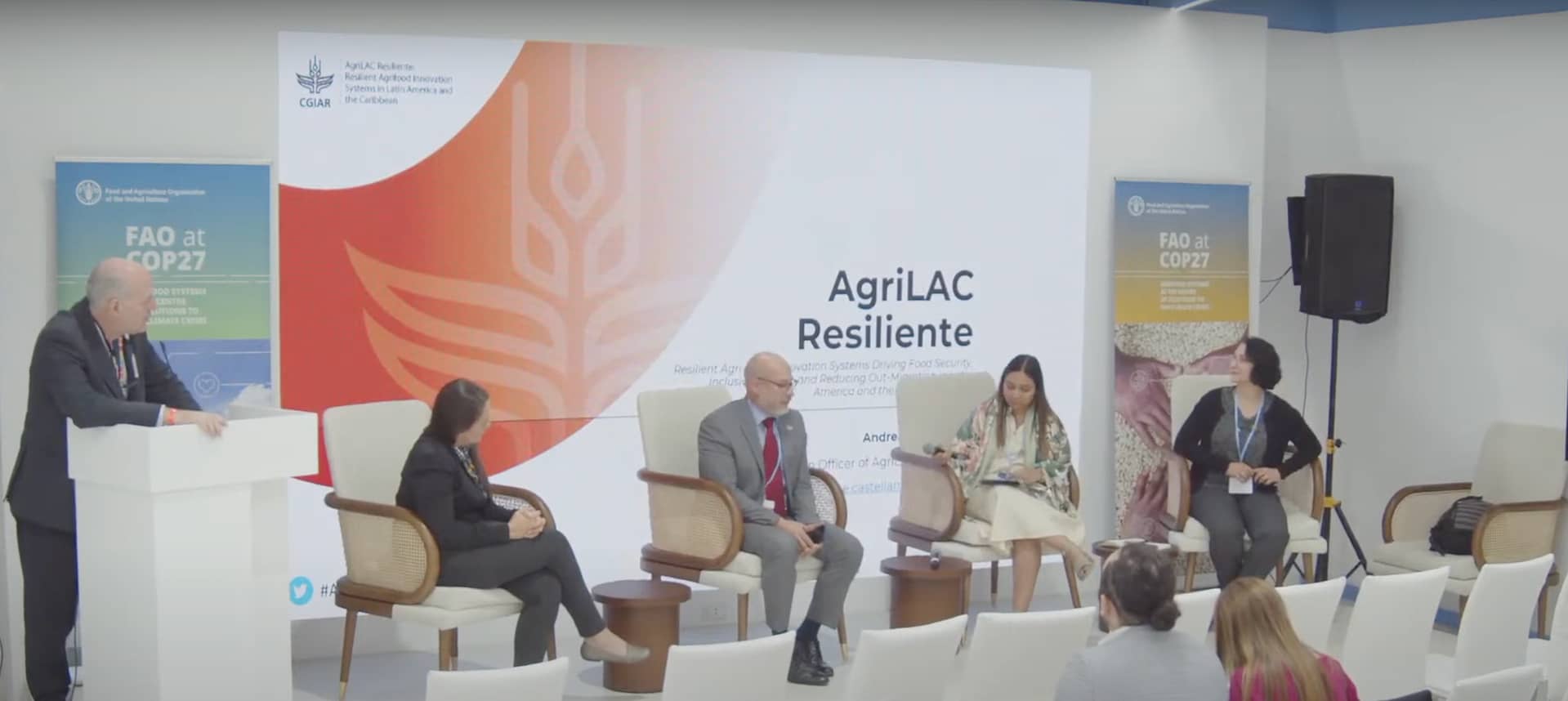
The Office for Latin America and the Caribbean focused its participation through the Platform for Climate Action in Agriculture, PLACA, and the AFOLU 2040 Initiative.
During its participation in the 27th Conference of the Parties to the United Nations Framework Convention on Climate Change (COP27), FAO’s regional office for Latin America and the Caribbean reaffirmed the urgency of moving forward as soon as possible with climate action in agriculture.
“The challenge now is our ability to achieve food security, eradicate poverty and achieve sustainable development.
Therefore, strengthening regional climate action, particularly in the agricultural sector, which is the source of a wide range of solutions that contribute to climate change adaptation and mitigation, is urgent,” explained Mario Lubetkin, FAO Regional Representative for Latin America and the Caribbean.
The FAO regional office’s participation in COP27 focused on the work conducted by the Platform for Climate Action in Agriculture Latin America and the Caribbean (PLACA).
This voluntary regional mechanism supports regional and national climate change and variability strategies.
On this occasion, it addressed its challenges in three events in the pavilions of Chile, the World Bank and the Agriculture and Food Pavilion, in addition to meetings with high-level authorities.
In the context of COP27, Paraguay and Ecuador signed up to PLACA on 14 November at a high-level meeting with the Minister of Agriculture and Livestock of Paraguay, Moisés Santiago Bertoni, the Vice Minister of Agriculture and Livestock of Costa Rica, Fernando Vargas, and representatives of the Government of Ecuador.
The mechanism now includes the participation of 15 countries in the region.
In addition, the platform addressed the work in PLACA’s Thematic Groups through the promotion of technical spaces for interdisciplinary collaboration; and the identification of more than 80 low-cost technological solutions that are already contributing to improving the sustainability of agrifood systems, in the pavilions of Chile and the Agriculture and Food Pavilion.
AFOLU 2040
Latin America and the Caribbean face significant threats and challenges to climate and the environment. 40% of the region’s total land area will have reached or exceeded the threshold of 2 degrees warmer within the next 11 years.
This will translate into major impacts on rural livelihoods, such as changes in rainfall and temperature regimes, and consequently impacts on production and food production.
Central America is the tropical region most affected by climate change.
In this context, the FAO Office in Central America organized the regional side event at the COP27 “Transition to a low-emission economy in Central America and the Dominican Republic: The AFOLU Initiative”.
The meeting addressed the challenges of formulating the Agriculture, Forestry and Land Use Change Initiative, AFOLU 2040, whose central objective is to build regional agricultural resilience in the countries of the Central American Integration System (SICA).
This initiative will restore and preserve 10 million hectares of degraded land and ecosystems by 2030 and achieve net-zero emissions by 2040.
FAO authorities, PLACA, and ministers of agriculture and environment from Paraguay, Costa Rica, Ecuador, El Salvador, Costa Rica, and the Dominican Republic, as well as high-level representatives of regional integration blocs, participated in the events.
COP27 is a United Nations event that will be held until November 18 in Egypt and currently brings together leaders from all regions of the world to advance in the fulfillment of the historic Paris Agreement for the reduction of emissions and adaptation to climate change.
Advertise with the mоѕt vіѕіtеd nеwѕ ѕіtе іn Antigua!
We offer fully customizable and flexible digital marketing packages.
Contact us at [email protected]
















